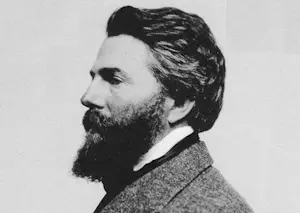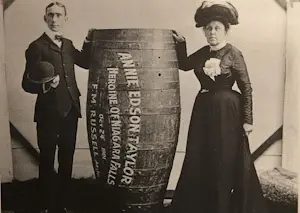
On This Day (October 18, 1851): Herman Melville’s Moby-Dick Was First Published
- RetroReelClassics
- Oct 18, 2024
- 5 min read
Updated: Oct 22, 2024

A Literary Milestone
On October 18, 1851, Moby-Dick, one of the greatest novels in American literature, was first published. While initially met with mixed reviews, Herman Melville’s tale of obsession and vengeance on the high seas would eventually secure its place as a monumental work, influencing generations of writers and readers. The story of Captain Ahab’s relentless pursuit of the white whale became a powerful symbol of humanity’s eternal struggle with nature, fate, and the unknown. Melville, however, faced many personal and professional challenges before reaching this peak in his writing career.
Discover the Adventure in Moby-Dick and Dive into the Excitement at Casino Orca!
As Moby-Dick made waves in literature, Casino Orca is making waves in the gaming world!
Launched in October 2024 and owned by the reputable Versus Odds B.V., Casino Orca offers a thrilling experience from the very first deposit with a 100% Welcome Bonus up to €500.
Whether you’re hunting for a white whale in Melville’s classic or big wins at Casino Orca, the adventure awaits.
18+ Only. Terms and Conditions Apply. Gambling Can Be Addictive. Please Gamble Responsibly.
Early Life: A Boy with the Sea in His Veins
Herman Melville was born on August 1, 1819, in New York City, into a family that struggled financially after his father’s early death. The Melvilles were of a distinguished background, but their fortunes dwindled, forcing Herman to seek work at a young age. His education was intermittent, but he nurtured a lifelong love of reading, particularly drawn to the works of Shakespeare, the Bible, and travel narratives.
Melville’s fascination with the sea was sparked during his teenage years when he embarked on several voyages, including whaling expeditions. These experiences would later inform much of his writing, with the sea serving as both a literal and metaphorical setting for his most famous works. By the time he began writing professionally, Melville had sailed to distant lands and witnessed the harsh realities of life at sea, experiences that shaped his distinct literary voice.
The Writer’s Journey: Early Works and Initial Success
Melville’s writing career began with the publication of Typee in 1846, a semi-autobiographical adventure novel based on his experiences in the South Seas. The novel was an immediate success, praised for its exotic settings and vivid descriptions of island life. Its sequel, Omoo, also enjoyed popularity, further establishing Melville as a writer of adventurous and captivating sea tales.
However, as Melville's work evolved, so too did his themes and style. His writing took on deeper philosophical undertones, exploring the complexities of human nature, morality, and the divine. While Typee and Omoo brought him commercial success, his later works, including Mardi and Redburn, marked a shift toward more ambitious, allegorical narratives. This shift perplexed many of his readers and critics, who were unprepared for the depth and ambiguity of his new direction.
Unlock Classic Entertainment with RedMagic!
Stream classic movies, binge TV series, and dive into timeless books on RedMagic’s powerful smartphones, tablets, and laptops. Enjoy stunning displays, all-day battery life, and smooth performance for an immersive experience wherever you go.
Experience entertainment like never before with RedMagic!
The Writing of Moby-Dick: A Struggle Against the Tide
By the time Herman Melville began writing Moby-Dick, he was determined to craft a novel that was not only an adventure story but also a profound exploration of the human condition. Drawing on his whaling experiences, the narrative began as a straightforward tale about a whaling voyage, but it soon grew into something far more complex. Melville wove in philosophical musings, theological reflections, and Shakespearean drama, creating a multi-layered masterpiece.
At the heart of Moby-Dick is the character of Captain Ahab, whose obsessive quest to kill the titular white whale serves as a powerful symbol of man’s futile attempts to conquer forces beyond his control. Ahab’s descent into madness and the crew’s doomed journey mirror the larger existential questions about fate, free will, and the limits of human knowledge.
Melville poured his soul into the writing of Moby-Dick, but the novel’s complexity and unconventional narrative structure proved challenging for readers and critics of his time. Upon its initial release, Moby-Dick was not well received, and it sold poorly. The novel was deemed too dark and philosophical, and Melville’s reputation as a popular author began to fade. For a man who had once enjoyed success, this rejection was a bitter pill to swallow.
Personal Struggles: A Writer Out of Favor
After Moby-Dick, Melville’s literary fortunes continued to decline. His later works, including Pierre and The Confidence-Man, were similarly misunderstood or outright dismissed by critics. Financial strain mounted, and Melville was forced to take a job as a customs inspector in New York, a position he held for nearly two decades. The man who had once roamed the seas and penned great adventure stories now led a quieter, more constrained life.
Melville’s personal life was also marked by tragedy. His son, Malcolm, died in 1867, an event that deeply affected him. Despite these hardships, Melville continued to write, although much of his later work, including poetry, went largely unnoticed during his lifetime.
Set Sail for Adventure with Whale Wild at Winstoria Casino!
Celebrate the iconic release of Herman Melville’s Moby-Dick and dive into a thrilling pirate adventure with Whale Wild!
Join Winstoria Casino today to experience this exciting game and embark on your quest for treasure! New players can seize a supercharged welcome bonus of up to €1,200 plus 225 free spins! Complete Daily Missions and rise through the ranks in the VOP Program for epic rewards.
Don’t miss out—your treasure awaits at Winstoria!
18+ Only. Terms and Conditions Apply. Gambling Can Be Addictive. Please Gamble Responsibly.
Legacy: The Rediscovery of Moby-Dick and Melville’s Genius
It wasn’t until decades after Melville’s death in 1891 that his work, particularly Moby-Dick, began to receive the recognition it deserved. The novel’s rediscovery in the early 20th century, largely due to the efforts of literary scholars and modernist writers, sparked a re-evaluation of Melville’s genius. Today, Moby-Dick is considered one of the greatest novels ever written, celebrated for its rich symbolism, profound themes, and innovative narrative structure.
Melville’s legacy now stands as one of the most important in American literature. His works, particularly Moby-Dick, continue to inspire and challenge readers, offering a timeless exploration of human ambition, obsession, and the often unfathomable forces of the universe.
Explore the Works of Herman Melville: HERMAN MELVILLE – Premium Collection by Virginia Woolf
For those who want to delve deeper into the life and works of Herman Melville, the HERMAN MELVILLE – Premium Collection, edited by Virginia Woolf, offers a comprehensive look at Melville’s major writings, including his novels, short stories, and essays. This collection provides a valuable window into the mind of one of America’s most important literary figures and showcases the breadth of his storytelling abilities, from his early adventure tales to the profound philosophical depths of Moby-Dick.
Download and read HERMAN MELVILLE – Premium Collection by Virginia Woolf
Follow us on social media!
X (Twitter) | Instagram | YouTube | Facebook
Disclaimer:
Please note: Some of the links included in this article are affiliate links. This means we may earn a commission at no additional cost to you if you choose to use them. These commissions help us continue to provide quality content and services.







Comments